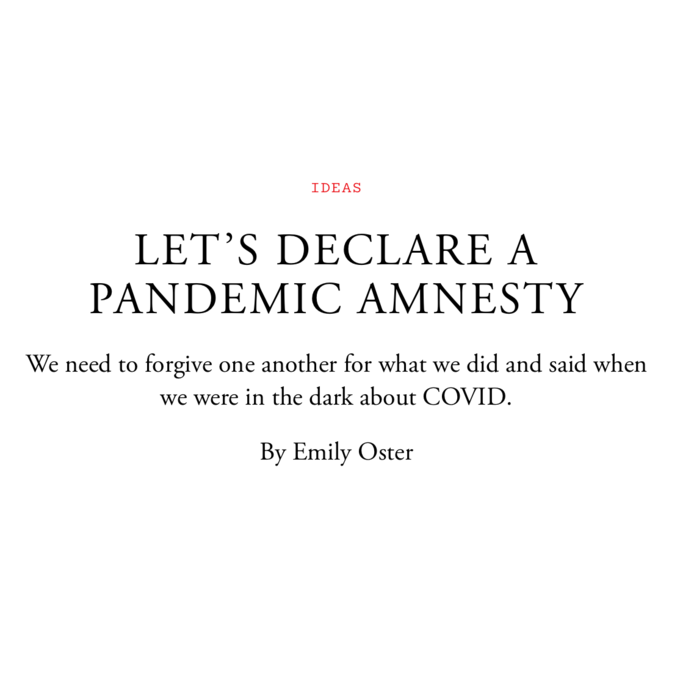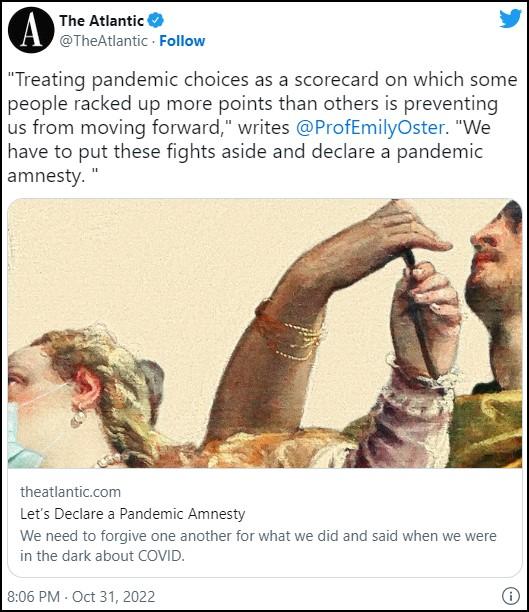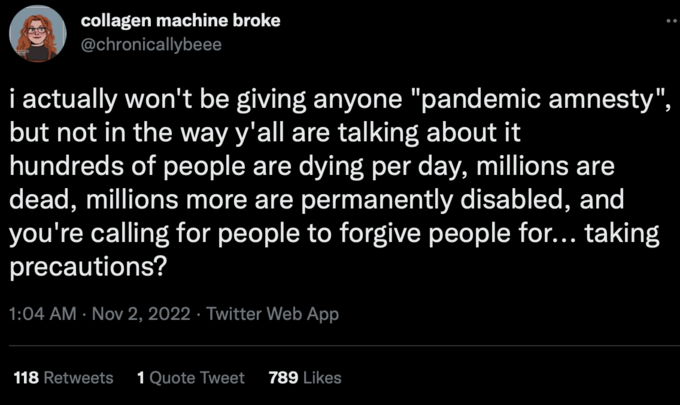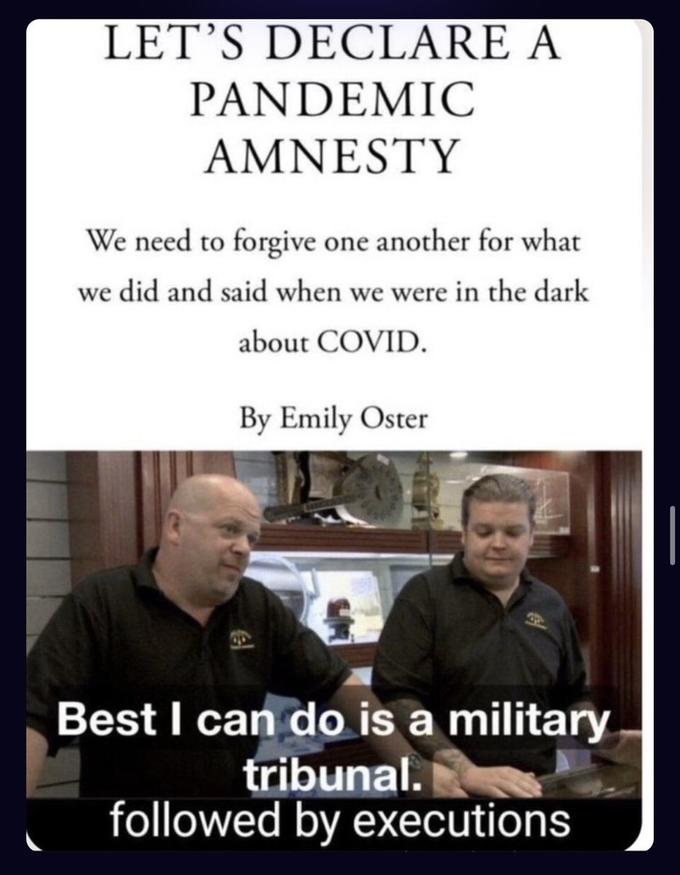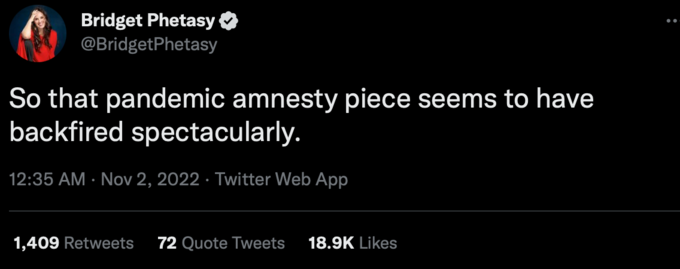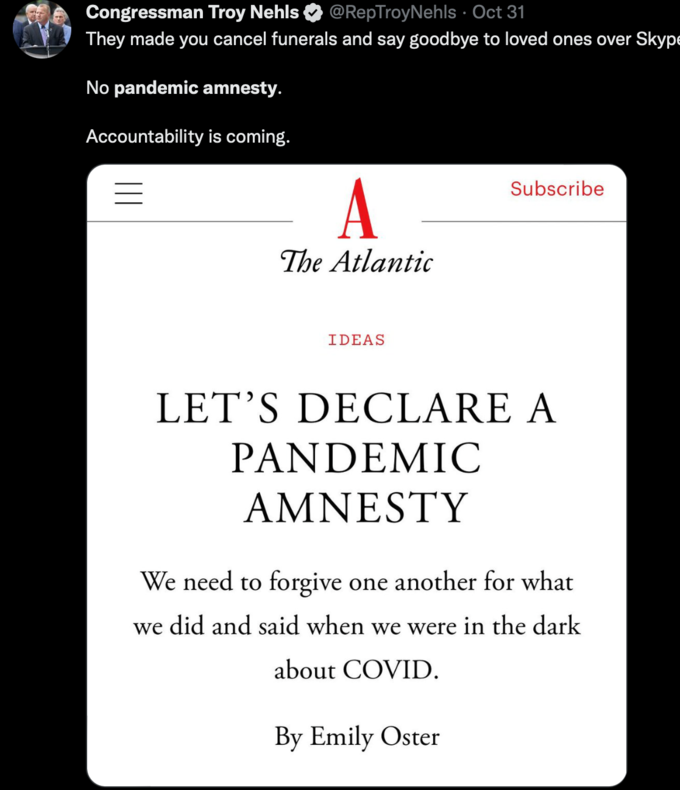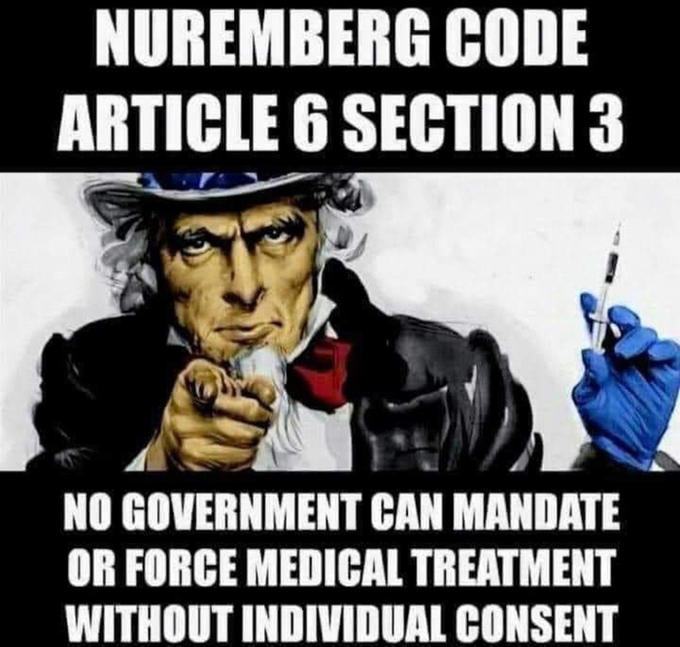Pandemic Amnesty – Know Your Meme
About
Pandemic Amnesty is a catchphrase and slang term taken from an essay published in The Atlantic by Emily Oster in late October 2022, which argued that American society needs to forgive extreme actions taken by people, the government and public health experts at the beginning of the COVID-19 pandemic. Over the following days into early November, the article and concept behind the term “pandemic amnesty” spurned a viral debate online, with many anti-vaccination and conservative voices, among others, criticizing and memeing Oster’s phrase. Several mainstream media outlets also covered the article and began to report on the backlash that ensued shortly after.
Origin
On October 31st, 2022, The Atlantic published the article by Emily Oster under the title “Let’s Declare a Pandemic Amnesty” and the subheading “We need to forgive one another for what we did and said when we were in the dark about COVID” (seen below). Oster, an economist at Brown University, argued in her piece that “most errors were made by people who were working in earnest for the good of society” and that in order to address the damage done to institutions by the pandemic and lockdown measures, it was necessary to recognize that.
The article was tweeted by the official Twitter account of the Atlantic on October 31st, which was somewhat ratioed within the next three days after receiving roughly 180 quote retweets, 25 retweets and just 41 likes (seen below).
Spread
Shortly after the essay’s publication on October 31st, 2022, people online began posting their reactions to the “pandemic amnesty” phrase, many seemingly taking issue with the underlying concept. For example, anti-vax TikToker rossduboss_2.0 posted a TikTok (seen below) reacting to The Atlantic headline that same day and received over 330,000 views and 60,000 likes in the course of two days. Subsequent posters then duetted with his video, spreading his rant further.
On November 1st, 2022, the topic was then covered on the Fox News show Fox and Friends, which framed the issue as a culture war story, noting the criticism it received among some on Twitter and paired it in coverage with conspiracy theories surrounding the attack on Paul Pelosi (shown below).
[embedded content]
On Twitter, some pushed back against the anti-vax framing of the story, such as user @chronicallybeee, who posted a tweet on November 2nd (seen below) reminding others of the human and institutional toll of the pandemic. In their tweet, @chronicallybeee argued that the real problem with the U.S. pandemic response was its lack of organization and comprehensiveness, earning almost 800 likes in roughly 12 hours.
A significant amount of the conversation about the “pandemic amnesty” term appeared to center around anti-vax circles. For example, the related hashtag “#nuremberg2” trended among such users on Twitter, which referenced the Nuremberg trials conducted by the Allies after World War II that culminated in the execution of prominent Nazis. Several memes and tweets, like one posted by Twitter user @PureBloodNurse on November 2nd that received nearly 200 likes in less than an hour (shown below), also advocated for violence and used the Atlantic article headline as an exploitable template.
Following the initial discussions of pandemic amnesty, much of it consisting of pushback by conservative and anti-vax circles, the idea crossed into the mainstream media with publications like The Wall Street Journal, Deseret News, Fox News and others all publishing articles on November 2nd.
High-profile individuals, such as U.S. Congresspeople Troy Nehls of Texas and Lauren Boebert of Colorado, also shared the story and implied they would investigate and seek to punish the people who managed the early COVID-19 response if their party wins the majority in the midterm elections.
Various Examples
External References
This article has been archived for your research. Find the original article here.
